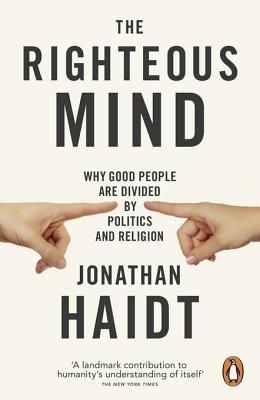More on this book
Community
Kindle Notes & Highlights
Read between
November 1, 2018 - May 12, 2019
Plato believed that reason could and should be the master; Jefferson believed that the two processes were equal partners (head and heart) ruling a divided empire; Hume believed that reason was (and was only fit to be) the servant of the passions.
The main way that we change our minds on moral issues is by interacting with other people. We are terrible at seeking evidence that challenges our own beliefs, but other people do us this favor, just as we are quite good at finding errors in other people’s beliefs. When discussions are hostile, the odds of change are slight. The elephant leans away from the opponent, and the rider works frantically to rebut the opponent’s charges. But if there is affection, admiration, or a desire to please the other person, then the elephant leans toward that person and the rider tries to find the truth in
...more
Progress happens when theories are tested, supported, and corrected by empirical evidence, especially when a theory proves to be useful—for
Everyone cares about fairness, but there are two major kinds. On the left, fairness often implies equality, but on the right it means proportionality—people should be rewarded in proportion to what they contribute, even if that guarantees unequal outcomes.


